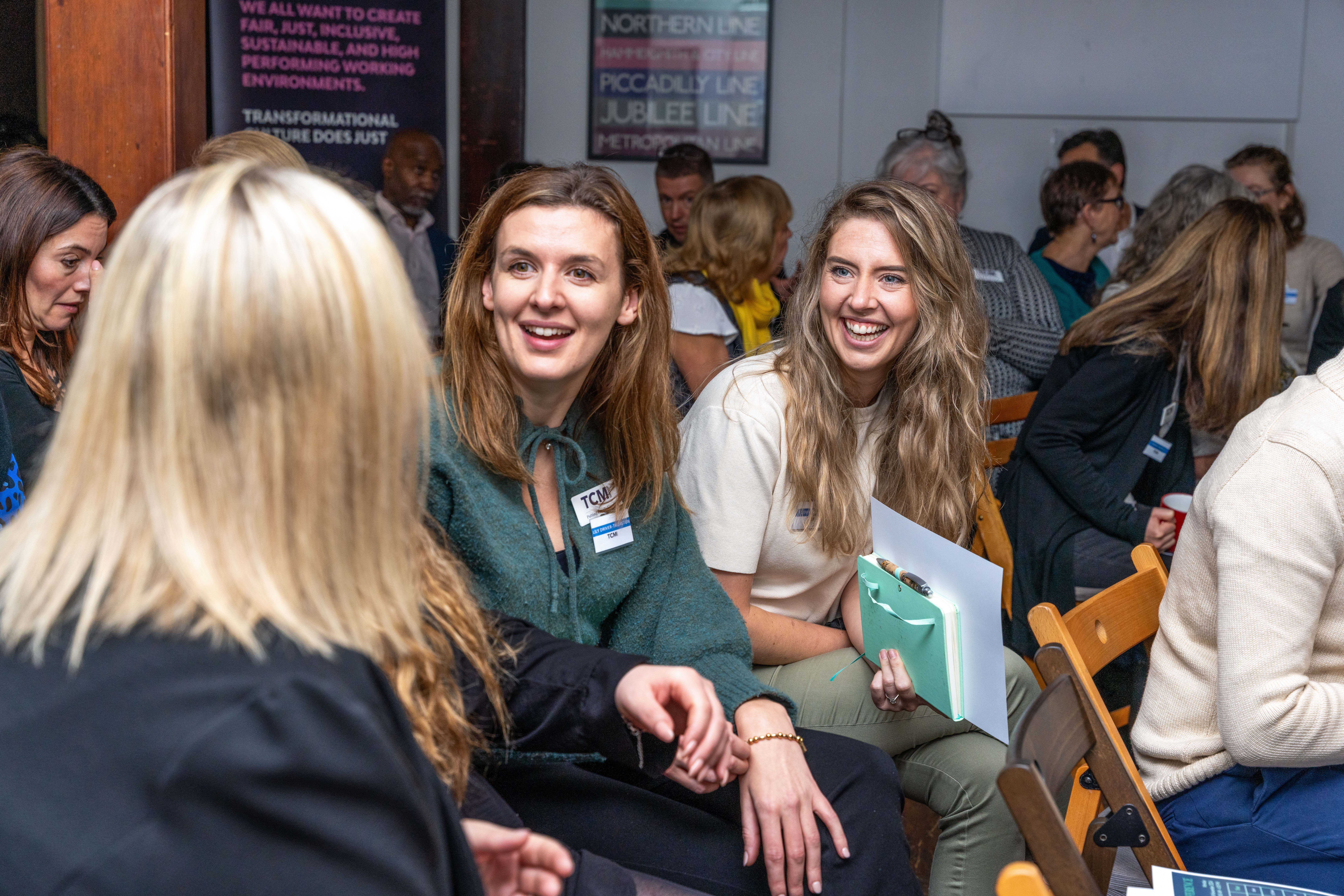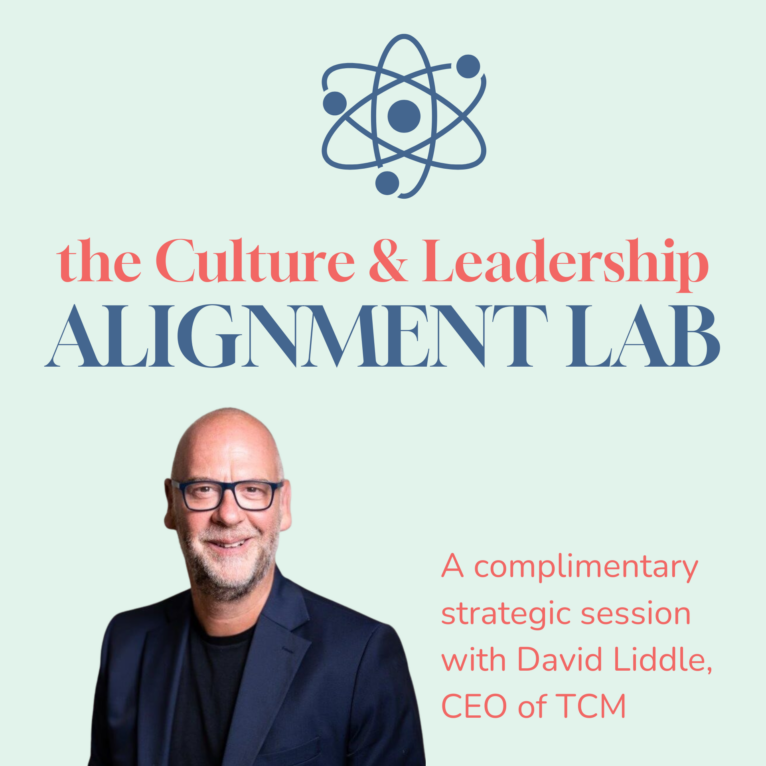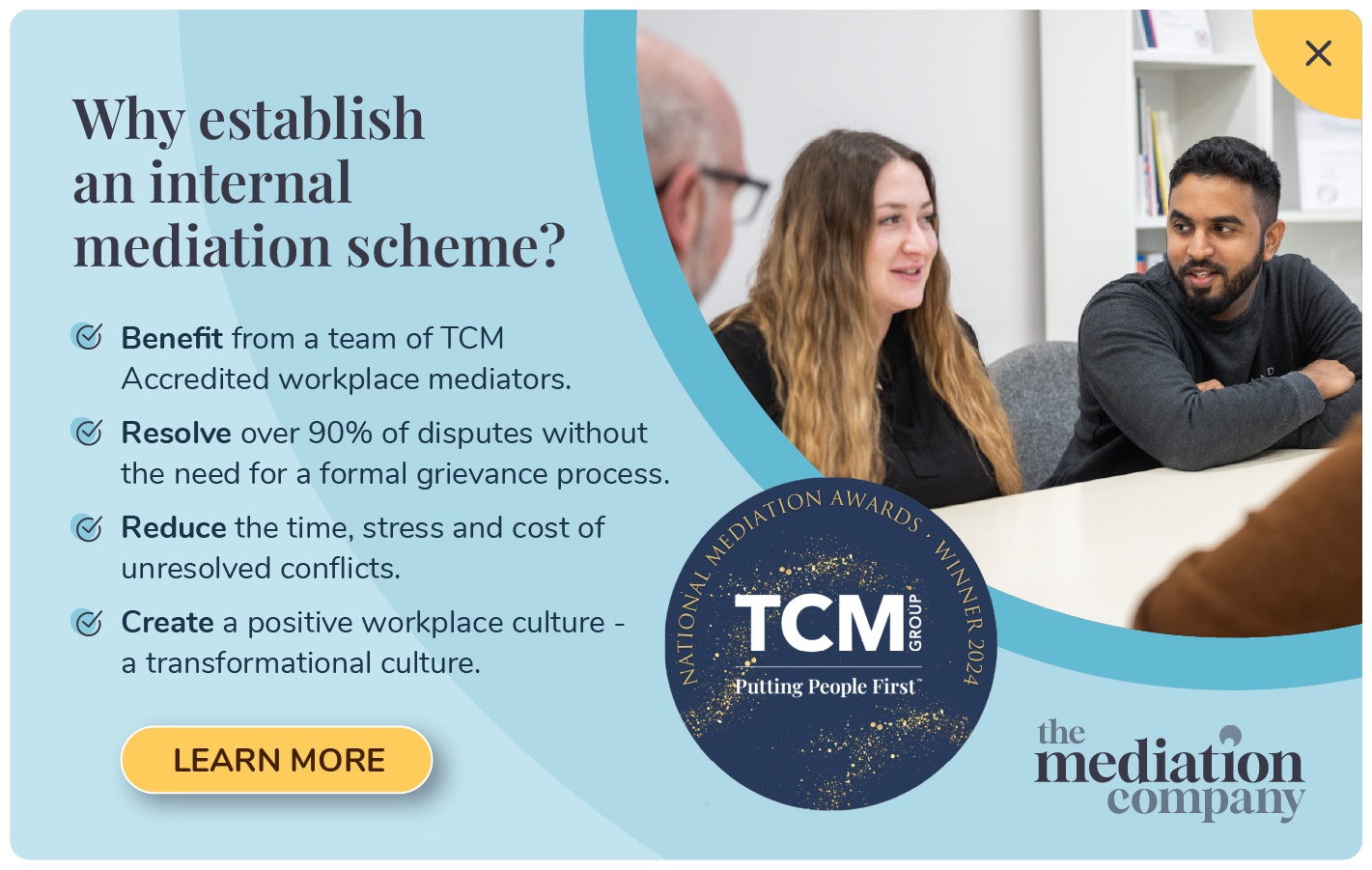
Share article:
Tags:
Business success in a seemingly never-ending pandemic? It’s not impossible, but it does take work. The magic lies in dialogue: helping us to solve difficult problems, spark innovation, boost engagement, and empower mental health within our organisations. Our lives are fostered around meaningful daily interactions: most of us conversing with family members, shopkeepers, postmen, and bus drivers within the first early hours of our days. Work is no different. But somehow, workplace conflict is on the rise: towards organisations, within teams, and individually. Criticism can’t be received, concerns won’t be heard, and ideas aren’t listened to, resulting in hostile climates and big problems. Clearly, we need to talk it out. It sounds simple, and it is, if we know how – our brand-new Quality Conversations® one-day programme does just that.
Why is communication so important to business development?
Solving Problems and Facilitating Engagement
“Great managers who have meaningful ongoing discussions with their employees also take ongoing action based on what they hear in those everyday conversations. They ask good questions, including disarmingly simple ones, and they pay close attention to the responses. They keep the wheels of engagement turning all the time, just by talking.”
Gallup
Perhaps surprisingly, one of the biggest takeaways from this global pandemic has not been an incessant obsession with flooding supermarkets for an apocalyptic supply of toilet roll. Economists have forecast what they call the ‘The Great Resignation’: Covid-19 has provoked a visible shift in attitude from workers across the world, with many reprioritising their needs, feeling more encouraged to speak up, and bringing to light the bleak reality of former workplace conditions. To keep valuable people in organisations is imperative, and the key to this – communication. Management must move with the tide and turn one-way grievances into two-way conversation: preventing disputes from escalating, confidently addressing crucial conversations, and assertively addressing performance issues.
“When you engage someone in dialogue, you engage them in a level of discourse… talking directly, connecting with the person’s deepest assumptions. When people connect that way, they feel very good about each other.”
The Magic of Dialogue by Daniel Yankelovich
Innovation and Creativity
“Organisations need to stimulate the maximum amount of creativity, innovation, and initiative in co-workers, rather than simply expecting them to show up and obey orders.”
Inc.
Traditional workplace hierarchies see leaders gesticulating and lecturing at the head of tables, dictating one-way presentations. That’s a thing of the past. 92 percent of companies have reported their on-premises software sales are growing in 2021 (Replicated data survey), proving that hybrid working cultures are becoming a permanent fixture. Top-down styles have been abolished in favour of shared understanding and ownership on collaborative Zoom calls, consequently forming strategic alliances between managers and teams. What holds this up? Dialogue. This new structure needs a new language; a skill that requires learning and practicing just like any other.
Involving a diversity of thought creates momentum, promotes shared visions, and escalates motivation. Leaders are no longer isolated but integrated into their teams, allowing creativity to run through organisations across all levels. Without effective, facilitated conversation, this modern and collaborative working structure ceases to function.
Empowering Mental Health
“Ask questions and listen closely. They say business isn’t personal, but it is.”
Gallup
If the pandemic has taught us anything, it’s that we all face struggles, no matter our position or power. For the first time, too, many employees saw the inside of their senior leaders’ homes, accidentally met curious wandering children, and were interrupted by deliveries, doorbells, and dogs. It made clear that beneath the suits and titles, we’re all human. In a Gallup survey, one manager noted that there’s always something going on in everyone’s lives that we should know about: facilitating safe communication is “our opportunity as managers to show our associates we care about them. And they can tell we care because we listen to their answers.”
It’s more important than ever for managers to push ongoing two-way dialogue with their staff in order to show empathy, compassion, and respect. Mental health has reached a (rightful) sense of urgency: it’s no longer a categoric medical diagnosis, but rather “a state of well-being in which an individual realises his or her own abilities, can cope with the stresses of life, and can work productively” as per the World Health Organisation’s definition. With this in mind, everyone has had their mental health affected: the pandemic has undoubtedly put immense pressure on individuals’ capability to lead in both home and work life. Forbes found that interpersonal conflict has risen significantly, with mental health issues “exacerbated by isolation, working conditions, and the uncertainty created by the pandemic.”
How do we track this societal shift and keep anxieties at bay? By having real, active conversations that centre on the individual and their emotions. To do so, managers must be equipped with the ability to facilitate psychologically safe, empathetic, and empowering communication. Try asking your colleague: “How are you – really?” tomorrow and see what happens. This kind of supportive dialogue must forever be ongoing as we continue to navigate our collective post-pandemic world. We’re all in this together and it’s time we started acting like it.
Let us show you how it’s done with Quality Conversations® at The TCM Group.
















